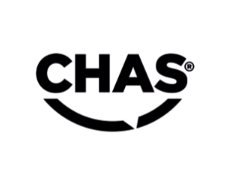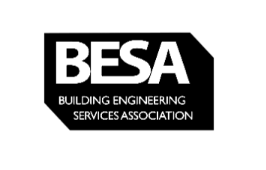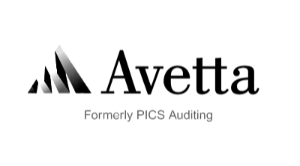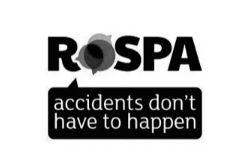The clinical waste management sector has undergone significant transformation in recent years. According to the Department of Health and Social Care's 2024 update to the Health Technical Memorandum (HTM 07-01), healthcare facilities must now demonstrate greater accountability in waste segregation, treatment choice, and environmental impact mitigation.
The Environment Agency's latest enforcement statistics reveal a 23% increase in regulatory actions against healthcare facilities for improper waste disposal since 2023. Particularly concerning are improper pharmaceutical waste disposal practices and inadequate segregation of infectious materials, which account for approximately 65% of all violations.
Cost implications of non-compliance are substantial. Recent case studies from NHS Improvement show that penalties for improper clinical waste management have increased by an average of 35% since 2023, with some facilities facing fines exceeding £75,000 for serious breaches.
The transition toward more sustainable waste management aligns with the NHS Net Zero initiative, which requires healthcare facilities to reduce waste-related carbon emissions by 40% by 2030. This target has accelerated the adoption of alternative treatment technologies that move away from traditional high-temperature incineration.
Advanced Treatment Technologies for Solid Clinical Waste
Research published in the Journal of Environmental Chemical Engineering (2023) identifies several non-incineration technologies gaining significant traction in the UK market:
Microwave Treatment Systems: These systems use microwave energy to heat moisture within the waste, achieving temperatures of 95-100°C that effectively destroy pathogens. Recent improvements have increased processing capacity by nearly 40% compared to 2020 models, with energy consumption reduced by approximately 25%. The Waste and Resources Action Programme has documented these efficiency improvements.
Advanced Autoclaving: Modern autoclave systems now integrate steam sterilization with mechanical processing to reduce waste volume by up to 80%. The latest systems feature enhanced moisture penetration for more consistent microbial inactivation, addressing previous concerns about efficacy with dense waste loads.
Chemical Treatment: New enzymatic and alkaline hydrolysis processes show promise for specific waste streams, particularly anatomical and pharmaceutical waste. These methods offer significantly lower energy consumption than incineration, with some systems reducing carbon emissions by up to 90%. The Department for Environment, Food & Rural Affairs has endorsed these approaches in their latest guidance.
Pyrolysis and Gasification: These technologies convert clinical waste into synthetic gas, which can then generate electricity. While still emerging in the UK healthcare sector, pilot installations have demonstrated net energy production of 600-750 kWh per tonne of waste processed.

According to the International Journal of Quality & Reliability Management (2024), healthcare facilities implementing these alternative technologies have reported average operational cost reductions of 18-27% compared to traditional incineration, alongside 30-45% reductions in carbon emissions.
Digital waste tracking systems have become increasingly sophisticated, with blockchain-based solutions now offering complete chain-of-custody documentation from point of generation to final treatment. These systems help facilities demonstrate compliance while identifying opportunities for waste reduction through detailed analytics.
Sanitary Waste Management
Modern sanitary bin solutions have evolved significantly beyond basic receptacles to address multiple stakeholder concerns. The latest innovations include:
Antimicrobial Surface Technologies: New sanitary bins incorporate surfaces with embedded silver ions or other antimicrobial compounds that reduce bacterial growth by up to 99.9%, addressing infection control concerns in healthcare settings. The British Standards Institution has established testing protocols for these antimicrobial claims.
Non-touch Operation: Sensor-activated lids and pedal mechanisms have become standard, reducing touch points and cross-contamination risks. Some advanced units now incorporate proximity sensors that adjust lid opening times based on user behavior patterns. These designs align with infection prevention guidelines from the Healthcare Infection Society.
Odour Control Systems: Advanced carbon filtration and enzymatic treatments are being integrated into sanitary bins, neutralizing odours rather than masking them. This technology has been shown to reduce odour complaints by up to 85% in busy healthcare environments, according to independent testing laboratories.
Capacity Monitoring: Smart sanitary bins now feature fill-level sensors that transmit data to service providers, optimizing collection schedules and reducing unnecessary servicing by up to 30%. This technology helps prevent overflow incidents while reducing the carbon footprint associated with collection services.
Research indicates that healthcare facilities with optimized sanitary waste management systems report significant improvements in patient satisfaction scores, with one study published in the Journal of Hospital Infection finding a 17% increase in positive feedback regarding washroom facilities following implementation of advanced sanitary waste solutions.
Pharmaceutical Waste
Pharmaceutical waste presents unique disposal challenges due to its potential environmental impact and regulatory complexities. Recent innovations are addressing these concerns:
Pharmaceutical Take-Back Systems: Secure medication return kiosks with integrated tracking capabilities allow for controlled collection of unused medications, reducing the risk of improper disposal. NHS pilot programs have recovered approximately 3.5 tonnes of unused medications across participating facilities in 2024 alone.
On-site Neutralization Technologies: New systems can render pharmaceuticals non-recoverable and non-hazardous through chemical or physical alteration. These technologies address concerns about potential diversion of controlled substances while reducing environmental impact. The Medicines and Healthcare products Regulatory Agency has published guidance on these technologies.
Advanced Wastewater Treatment: For liquid pharmaceutical waste, specialised filtration and oxidation systems can remove pharmaceutical compounds from wastewater before discharge. Implementation of these systems has shown reductions of up to 99% in pharmaceutical concentrations in treated effluent, according to research from Water UK.
Thermal Deactivation: For solid pharmaceutical waste, modern low-temperature thermal deactivation units operate at temperatures sufficient to destroy active pharmaceutical ingredients without producing the harmful emissions associated with high-temperature incineration. These systems comply with the European Waste Incineration Directive requirements.
The latest guidance from the Royal Pharmaceutical Society (2025) emphasizes the importance of pharmaceutical waste segregation, with specific protocols for cytotoxic medications, controlled drugs, and hazardous compounds. Healthcare facilities implementing these protocols have reported compliance improvements averaging 43% in recent audits.
Sharps Management
Sharps injuries remain a significant concern in healthcare settings, with approximately 4,300 reported needlestick injuries in the UK healthcare sector in 2024 according to the Health and Safety Executive. Modern sharps management systems address both safety and environmental concerns:
Safety-Engineered Sharps Containers: The latest containers feature enhanced safety mechanisms, including restricted openings that prevent hand access, puncture-resistant materials, and secure closure systems. These features have been associated with a 35% reduction in container-related sharps injuries according to Public Health England data.
Reusable Sharps Container Systems: Rotationally moulded containers that can be mechanically emptied, cleaned, and disinfected for reuse are gaining popularity. These systems can reduce sharps waste container volume by up to 85% while decreasing associated carbon emissions by approximately 90% compared to single-use containers, as documented by the Sustainable Healthcare Coalition.
Robotic Processing: Automated systems for emptying and processing sharps containers minimize human handling and associated risks. Facilities implementing these systems report sharps injury reductions of up to 78% during waste handling processes, according to NHS Employers safety data.
RFID Tracking: Radio-frequency identification technology allows for detailed tracking of sharps containers, ensuring proper rotation, preventing overflow, and providing documentation for compliance purposes. Integration with broader waste management systems creates comprehensive audit trails that comply with hazardous waste regulations.
Research published in the Journal of Environmental Chemical Engineering indicates that healthcare facilities implementing comprehensive sharps safety programs, including modern container systems and automated processing, achieve average cost savings of £11,500-£14,000 per 100 beds annually when accounting for reduced injury-related expenses and waste management efficiencies.
Solutions for Compliant and Sustainable Clinical Waste Management
Managing clinical waste effectively requires integrated solutions from experienced providers. PHS offers comprehensive services tailored to healthcare facilities of all sizes, including:
Sanitary Waste Solutions: Our advanced sanitary bin services include antimicrobial units, scheduled servicing, and compliant disposal pathways specifically designed for healthcare environments. These solutions ensure hygiene standards are maintained while meeting all regulatory requirements.
Pharmaceutical Waste Management: PHS provides specialized pharmaceutical waste containers and collection services that ensure compliant disposal of medications, including controlled drugs. Our tracking systems deliver complete documentation for regulatory peace of mind, supporting sustainable waste management practices.
Sharps Disposal Services: From provision of UN-approved sharps containers to scheduled collection and compliant treatment, PHS offers complete sharps management solutions that prioritize safety and sustainability.
Clinical Waste Audits: Our expert consultants can assess your current waste management practices, identify opportunities for improvement, and help implement cost-effective, compliant solutions that reduce environmental impact. We help you understand the difference between infectious and offensive waste for proper segregation.
By partnering with PHS for clinical waste management, healthcare facilities benefit from decades of specialized experience, nationwide service coverage, and continued investment in the latest treatment technologies. Contact our healthcare specialists today to discuss how we can optimize your clinical waste management program.



































